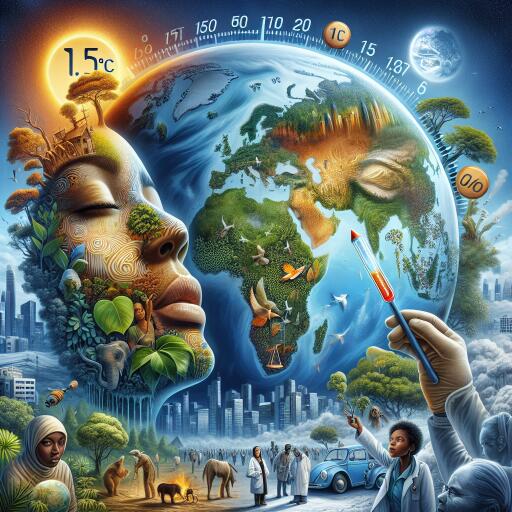
Paris Agreement: The Importance and Impact of Keeping Global Warming to 1,5°C
The warming of our planet is undeniably one of the most critical environmental challenges faced by humanity today. Accompanying this rise in temperature is the broader phenomenon of climate change, leading to an array of detrimental impacts felt across the globe. This article aims to illuminate this pivotal issue by delving into the principal causes and far-reaching consequences of global warming.
Human activity lies at the heart of global warming, with the primary culprit being the rampant use of fossil fuels. The burning of these fuels releases significant quantities of greenhouse gases, which accumulate in the atmosphere and result in the Earth’s temperature rise. Furthermore, activities such as deforestation and certain agricultural practices exacerbate the issue, altering delicate ecological balances and further intensifying climate change.
The ramifications of a warming planet extend beyond merely environmental impacts; they reverberate through economic and social spheres too. Here are some of the pervasive consequences:
- Environmental Impact: The tangible effects on our environment include increased temperatures, rising sea levels, and a higher frequency of extreme weather events, all of which disrupt natural ecosystems.
- Economic Consequences: The destabilization of weather patterns affects agriculture, fisheries, and energy production, leading to economic fluctuations and challenges.
- Social Challenges: The socio-economic impacts are profound, with communities facing displacement due to severe weather, health challenges from pollution-related effects, and resource scarcity inciting conflicts.
Tackling climate change necessitates a concerted effort from both individuals and nations. Effective methods in combating this global issue include:
- Adopting renewable energy sources to reduce dependency on fossil fuels.
- Enhancing energy efficiency in industries and homes to lower overall carbon footprints.
- Implementing and supporting afforestation and reforestation projects to absorb atmospheric carbon.
- Advancing sustainable agricultural practices to mitigate the impact on our climate.
Given the international scope of climate change, global cooperation is indispensable. Countries worldwide have forged agreements to curb greenhouse gas emissions, a notable example being the Paris Agreement. Such accords are pivotal in setting and achieving climate targets, providing a framework for collaborative environmental responsibility.
Global warming and climate change stand among the foremost challenges of our era. It is imperative that both individuals and governments shoulder the responsibility to address these issues. Through increased awareness and education, society can play an instrumental role in this battle. Proactive measures taken today will ensure that future generations inherit a planet that is healthier and more habitable. This call to action is not just a necessity but also an opportunity to reshape our world for the better.





Leave a Reply